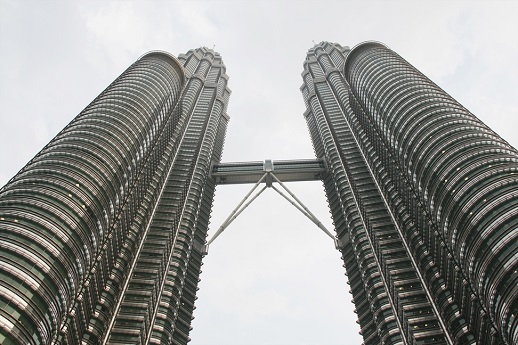
Malaysia has been considered a model Islamic nation of tolerance, allowing religious freedom to minorities. But the introduction of laws based on the tenets of Sharia restrict minority religions rather than allowing them to flourish.
The country’s ruling party, the United Malays National Organization (UMNO), backs these changes. UMNO sees itself as the protector of Islam and the rights of Malays, the country’s majority racial group that makes up half the population.
Malaysia’s independence from British rule in 1957 gives the context of today’s climate of creeping religious intolerance, though its origins reach right back to the arrival of the Europeans on the Malay Peninsula in 1511.
GO DEEPER: HOW MALAYSIAN ISLAMIZATION HAS ITS ROOTS IN EUROPEAN COLONIALISM
UMNO was formed during the transition to independence from Britain. It rejected the intention of the British to give immigrant workers equal rights and citizenship. These were chiefly Indian rubber plantation workers and Chinese tin miners whose settled families were now in their second and third generations.
Britain secured their citizenship at a cost. They had to agree to UNMO’s demand that Islam became the country’s official religion and that ethnic Malays were given special positions and rights.
The original agreement between the Malays, the Indians and the Chinese – the Federal Constitution – stated that: “Islam is the religion of the Federation, but other religions may be practiced in peace and harmony in any part of the Federation”. This Article 3(1) was meant to give protection to other faiths, while allowing for Islam to be the religion used in official ceremonies.
But in today’s court battles over religious freedoms, Article 3(1) is often interpreted as Islam being supreme and Muslims’ rights superseding those of other religions. This feeds into other restrictive clauses: Malay Muslims are denied the right to change religion – article 160 in the Constitution states that “A Malay is someone who professes the Muslim religion, speaks Malay language and conforms to Malay customs.” So, in other words, if you leave Islam you are, by law, no longer Malay.
Article 153 allows the government to establish quotas of entry into the civil service, and the granting of public scholarships. Rather than encouraging social mobility for Malay farmers and laborers to compete fairly with the wealthier, urban Chinese immigrant families, it is being used to block civil service promotion and university scholarships for many capable and bright non-Malay people.
Malaysian Chinese tend to prefer working in the private sector rather than the civil service. Malay Indians have become more marginalized than the Chinese because of their reliance on the rubber plantations that have since been closed due to industrialization.
An estimated 40 per cent of Malaysia’s Christians are thought to be of Chinese and Indian origins. Younger Malay Chinese and Indians increasingly study abroad and do not return after graduation. The Malaysian Church fears that this brain-drain will have an impact on the recruitment of future church leaders, as well as on economic prosperity.
Under the fourth Prime Minister Mahathir Mohamad, the country saw the beginnings of a political Islam that would bar any voice of dissent against a system increasingly Islamized. In 1985 he introduced what he called the Islamic values of honesty, efficiency and integrity into government administration, to help a bureaucracy that was inefficient and corrupt.
Rather than ending up with a more efficient government, these values appear to have bolstered a sense of superiority amongst Malay bureaucrats that has allowed a system to develop that does not favor non-Islamic religions.